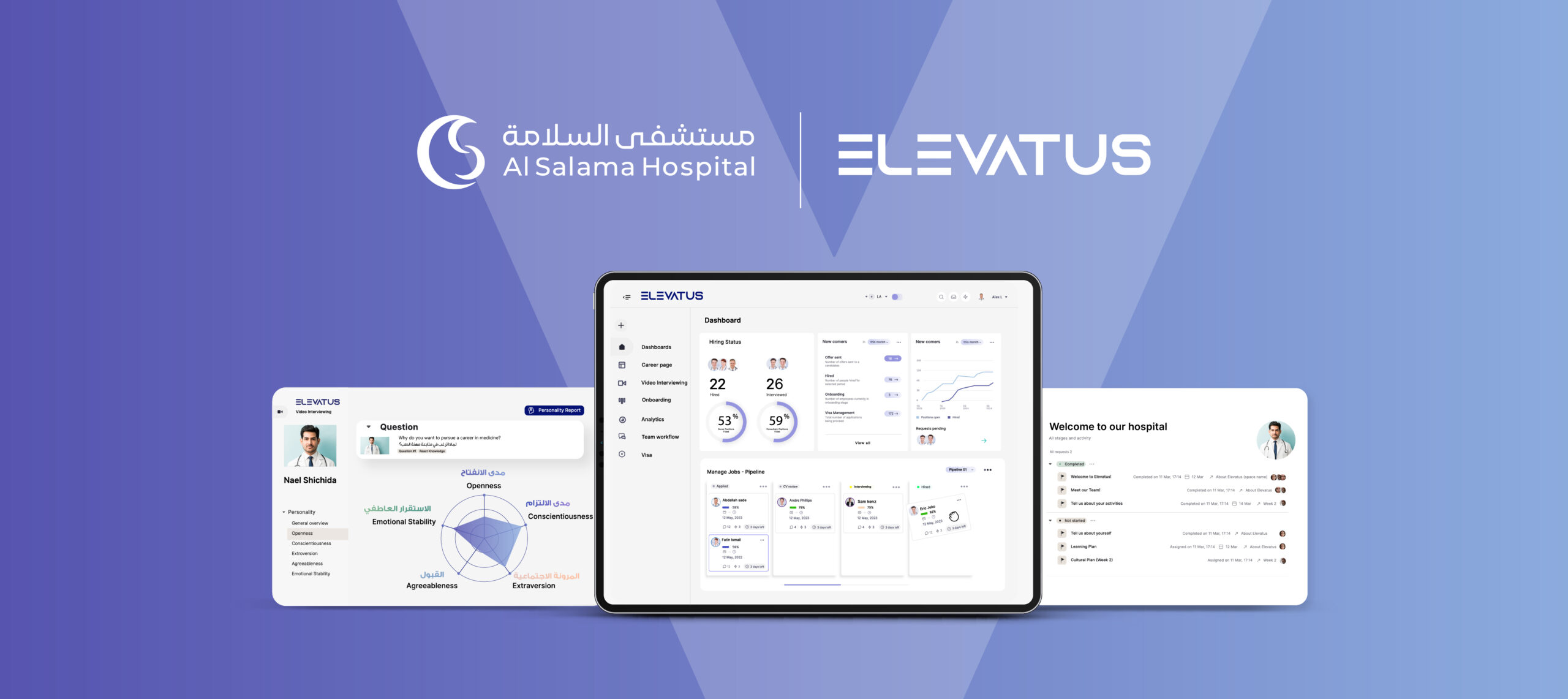
Hiring Platform
Why Remote Hiring Tends to Fail and 6 Quick Fixes to Redeem It
June 18, 2023



Tima Rassool
Content Writer
The road ahead of us is digital, especially when it comes to remote hiring.
But not all companies are wired for remote hiring. It may thrive in some and fail in others.
Since the pandemic, we’ve seen more and more companies rely on video assessments to remotely interview and hire candidates. But how can you ensure that your hiring efforts are successful when you only meet candidates online? And most importantly – why does remote hiring tend to fail?
Sometimes, remote hiring can be a classic example of the expectations vs reality meme. Since remote hiring probably wasn’t always part of your plan, mistakes can happen. They might even snowball or escalate into failure. But once you get a grip on these mistakes early on, you can develop the right mindset and strategy to achieve remote hiring success.
So don’t give up on remote hiring just yet.
Here, you’ll find 6 reasons why remote hiring fails and 6 great ways to fix it.
Failing to set clear job expectations


If you’re remote hiring, the first thing you should cross off the list is writing crystal clear job descriptions. The reason why remote hiring tends to fail, is because employers don’t set clear expectations about the job. Which ultimately results in a bad hiring experience and evidently – bad hires.
For example, when hiring a remote team, be sure to set the right time zone. Since you’re hiring remotely, you will most likely be juggling candidates with different time zones. So the next time you’re writing job descriptions for a role, you’ll want to decide specify a suitable timezone that works for everyone.
Next up, talk about collaboration. With various employees working from different locations, how will they communicate with each other? What tools will they need? Be sure to highlight key information such as remote working hours, collaboration tools, and other expectations.
Need a hand with that? A hiring platform can help.
An end-to-end hiring platform like EVA-REC can help you write accurate and relevant job descriptions that bust any misconceptions about the job. It brings more structure to the way job descriptions are created and maintained. By only typing in the job title, EVA-REC will automatically autofill the skills section based on emerging jobs and up-to-date job requirements. Therefore, allowing you to post accurate job descriptions that attract the right candidates for the job.
Once you pinpoint the gaps in the aforementioned challenges, be sure to communicate them clearly to the remote candidate throughout the hiring process.
Lack of ongoing team collaboration


With remote hiring, team communication and collaboration starts to feel fragmented. Since everyone is working in silos, your team will miss out on water cooler chats, desk-side discussions, or impromptu coffee meetings. Sometimes it might feel like you’re the last one to find out about things. With remote hiring, it becomes excessively harder to communicate and discuss the hiring process with teammates – which is a major reason why remote hiring fails.
On the bright side, hiring platforms enable teams to collaborate in one centralized place to make communication more transparent. As a result, allowing recruiters to move quickly through the hiring process and drive better results.
For example, instead of taking 17 hours to collect interview feedback, recruiting teams can communicate in real-time through the hiring platform and move candidates between stages in one click.
Streamlined communication means less stress for recruiters. It improves the process of hiring cultural fits, allows for better preparation, reduces time-to-hire, and boosts employee retention.
Not leveraging the right hiring technology


A common reason why remote hiring doesn’t work, is because recruiters rely on a limited set of tools and technology. Combined with weak communication, recruiting teams will struggle to work in sync and streamline the hiring process.
With that said, it’s crucially important to use advanced hiring platforms and video interviewing software to effortlessly manage and optimize the entire remote hiring process – from “Hello” to “Hired”.
For exampe, using video interviewing software will ease the process of identifying, assessing, and hiring remote talent. Through next-generation video interviewing software like EVA-SSESS, you can impeccably build personal connections and boost engagement with candidates, even from a distance.
Through AI-powered video assessment interviews, you can get a better sense of a candidate’s personality traits and interpersonal skills through scientifically validated personality reports. Through these reports, recruiters can predict job performance, the candidate’s learning and communication style, performance in sales, programming aptitude, and the way they deal with customers.
Not going beyond the resume


Screening resumes can be quite monotonous. In fact, it can sneakily be zapping your energy before you even know it. Throughout the remote hiring process, it’s hard to weed out the best talent from a resume file – especially when you don’t get to meet them in person. Although resumes are no longer obsolete, they’re not strong enough on their own anymore.
Resumes on their own tend to be filled with information that don’t exactly predict job success or a candidate’s soft skills. Leaning too heavily on resumes can drive recruiters to make poor hiring decisions that will be detrimental to remote hiring practices. Therefore, we’re seeing more and more recruiters rely on video assessment interviews in addition to resumes.
Video assessment interviews help recruiters evaluate the strengths and weaknesses of candidates and assess whether they’re a good fit or not.
For example, recruiters can use their model answer to quickly and easily assess for required skillsets. Think of the model answer as a guideline for the recruiter. It’s often used as a benchmark when evaluating candidates’ answers. In other words, a model answer is the ideal answer that recruiters expect to hear from the candidates during their video assessment interviews.
After the candidates submit their video assessments, recruiters will get a relevancy percentage for each question which represents how closely the candidates’ answers match their own.This helps recruiters filter out correct answers fast, identify ideal keywords, move candidates forward in a pipeline, and help you pinpoint top talent faster than ever before.
Having a weak onboarding process


It goes without saying that onboarding candidates can have a crucial impact (financially as well) on your remote hiring process. When your onboarding process has no clear objective, moves too quickly, poorly trains new hires, and lacks structure – remote hiring will eventually fail.
Why? Because a weakly organized onboarding process hinders productivity and weakens the new hire’s first impression of your company. On the other hand, a great onboarding process will boost your remote hiring efforts by helping new hires feel welcomed and part of the company.
So when crafting your onboarding process keep a few things in mind. Focus on your vision, mission, values and company goals. These things will help you keep new hires inspired to get up in the morning, get to work, and unleash their full potential.
A few other tips to keep in mind is to be creative and innovative. Try your best to re-invent the in-office experience. Think of small personal touches that employees would commonly experience in the office – and bring them to life (virtually). Whether they’re virtual meet-and-greets, announcing a virtual event, or giving new hires a mentor or teammate to work with from day one.
Key takeaways
Remote hiring is a trend that nobody in the world of recruitment can afford to ignore. In order to find and attract the best talent, you’ve got to build a remote hiring process that is agile, innovative, interactive and above all, engaging. Pay special attention to setting clear job descriptions, improving team collaboration, leveraging the right technology, going beyond the resume, and crafting a stellar onboarding experience.
EVA-REC is an on-demand hiring platform that automates and improves the remote hiring process with AI technology. It offers businesses of all sizes and shapes fully customizable world-class features that help them create a rich and immersive hiring experience for everyone. Through EVA-REC, enterprises can drive merit-based, objective, and fair hiring practices that minimize bias, without dehumanizing the hiring process.
Turn top talent to employees fast
Hire, assess, onboard and manage top talent for every job. See how Elevatus streamlines everything; from acquire to new hire.
Request a demoAuthor



Tima Rassool
A wordsmith, storyteller, and content strategist – Tima is an MBA graduate with 6+ years of experience in the world of HR. With over 2,000 blogs under her belt, Tima's expertise and insights have helped businesses across the globe take their recruitment to the next level and stay ahead of the curve.
Don't miss a thing!
Stay one step ahead. Subscribe and get the latest updates, news, and insights from Elevatus straight to your inbox.







